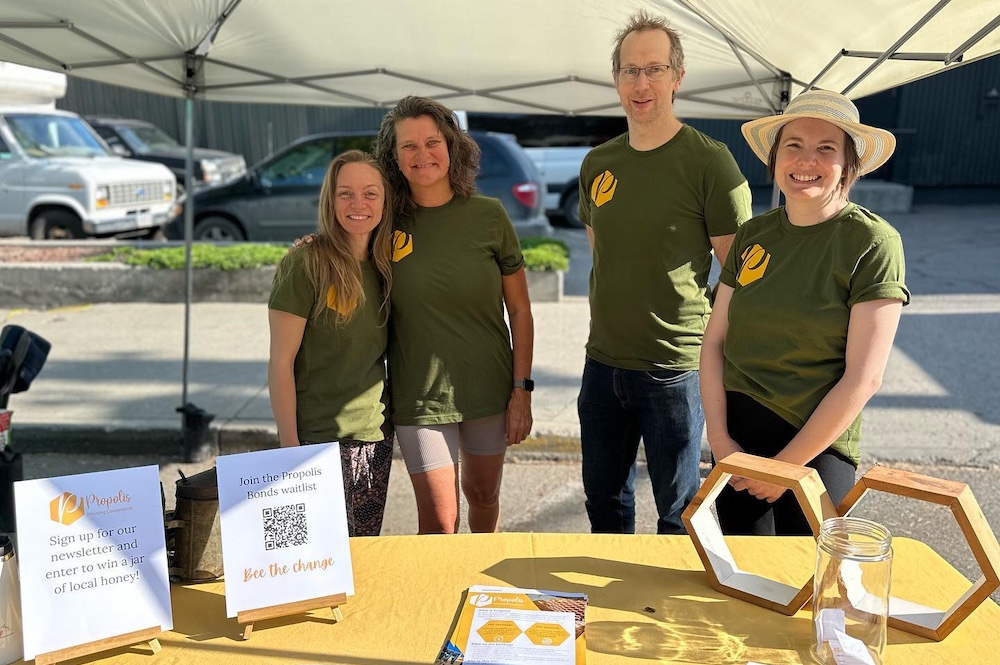This is a feature from Tapestry’s newsletter, The Thread. To receive bi-weekly deep dives into non-profit and co-op financing, subscribe at tapestrycapital.ca/newsletter.
Lindsay Harris wants Propolis Housing Cooperative, the nonprofit she co-founded in 2020 to build affordable homes in Kamloops, to end the housing crisis in one of Canada’s most expensive provinces. “We really see our vision as an organization for the long term,” she tells us. “In the future, we want to be owning and operating a network of multifamily buildings in the community.”
Of course, building a six-storey co-op building on Kamloops’ north shore, with 50 units ranging from bachelor to three-bedroom, plus commercial space on the ground floor, isn’t cheap. Propolis had a hard time qualifying for bank loans, as well as the funding programs offered through the Canadian Mortgage and Housing Corporations. It didn’t yet have a community of supporters, so to speak.
So how did Propolis, in the span of just four years, go from incorporating as a brand-new organization to clearing 90% of a $1.1 million community bond campaign, and eventually buying the land for that co-op?
They talked to everybody
In the early stages of their campaign, Propolis did some planning with Tapestry Community Capital to understand who their organization was connected to, and whether they might invest in — or spread the word about — their bonds. For instance, together we identified a network in local food security, an issue that unfortunately dovetails with the housing crisis. They’re also connected local businesses around the building site, with an interest economic development. And much more.
But it’s also meant having a lot of conversations across the table at a farmer’s market, at big community events, and in one-on-one conversations. Everyone on the team has to be able to explain both the project and the concept of community bonds in a deep and thoughtful way. “We didn’t have an existing mailing list of supporters when we started the campaign,” Lindsay says. “We were introducing ourselves to them, as a new organization, at the same time.”

They kept their campaign open-ended
Propolis held their first investor consultations in early 2023, and launched the campaign in early June of that year. Lindsay says if she could go back, she would start the community engagement process years earlier. Trying to explain who Propolis is and the bond campaign at once isn’t something she’d do again.
But by keeping their campaign open for over a year, Propolis has been able to continue selling bonds and using them to repay two short-term loans they needed to purchase the property back in March 2024. While this approach doesn’t work for every organization — it can be better to give supporters a deadline, to convey urgency — it’s worked well for Propolis to build relationships over time.
Propolis is close to 90% of its target raise, but Lindsay and the rest of the team aren’t slacking off. “Just yesterday, I went and did a big long presentation to the Kamloops Adult Learner society about the housing crisis, talking about the solutions that Propolis is doing,” Lindsay says. “It’s not actually a process that stops.”

